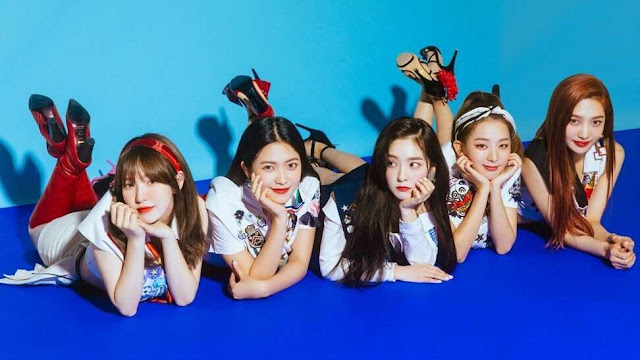Debuting in 2014 and known for their stand-out musicality, the quintet have been inactive for most of 2020 since member Wendy was injured during a live performance last December. With Wendy recently returning to the industry following her recovery, Red Velvet were expected to release new music before the end of the year.
But earlier this month, member Irene was called out for verbally abusing a stylist during a photo shoot, resulting in other industry insiders taking to social media to share their experiences with the allegedly volatile singer.
Irene, who most recently released the mini-album Monster in June as a duo with fellow Red Velvet member Seulgi, apologised on social media after the incident and to the individual in person, but her reputation has been damaged and there are calls for her to leave the act.
"I sincerely apologise for hurting the stylist with my foolish attitude and indiscreet words and acts," she posted on Instagram. "As I looked back, I was ashamed of myself and once again felt how precious our staff members are. From now on, I will be more cautious to prevent another incident like this." She also reportedly met the stylist to apologise in person.
While the biggest stars can be brought down by even a brief meltdown, in K-pop it's rare for stories of stars' misbehaviour to emerge from the industry itself.
The growing controversy over Irene's actions comes as South Korea comes to terms with the phenomenon known as gapjil, or what former Agence France-Presse Seoul correspondent Hawon Jung describes as "abusing (or) bullying others using one's social hierarchy and power".
Jung, who is writing a book about the #MeToo movement in South Korea, believes that much of the anger towards Irene stems from the country's reckoning with gapjil.
"Regardless of the veracity of the claim against her, or the severity of this particular case, the public sees this as part of a pattern of abuse by those in the power that has become a big issue in the country in recent years," says Jung.
Red Velvet's reputation as a mainstay of the K-pop world now seems at risk. Known for hits such as Psycho, Dumb Dumb and Red Flavor, Red Velvet have become one of South Korea's biggest girl groups, with members not only focusing on music but also becoming popular television personalities and actors.
Apart from the calls for Irene to step out of the spotlight, Red Velvet's management company, SM Entertainment, recently announced the launch of upcoming girl group Aespa, which some see as an attempt to divert attention away from the growing controversy over Irene.
In South Korea, stars - especially members of boy bands and girl groups - are typically expected to maintain a wholesome image. Women in particular are held to a high standard, with female K-pop stars often taken to task for lesser controversies than male artists.
Men often find it easier to return to the industry after a scandal, even if they face legal consequences. For example, singer-actor Kim Hyun-joong has faced a string of legal issues since 2014, but released a new album this month.
"Even if (Irene) was a man, she would face (a) certain level of public outrage and calls for a boycott because any perceived gapjil can easily touch a raw nerve in South Korea - where many people have personal experiences of falling victim to gapjil in their daily lives," says Jung. "But the question is not about whether there will be public outrage, but how long the public anger will last, how intense it will be, and how much damage it will bring to one's career."
The Irene controversy has blown up in South Korean media, with one major business newspaper even running an article on how an app determined that Irene's physiognomy, or facial features, revealed an apparently aggressive and reckless personality.
But in the past, those very same facial features led to Irene being dubbed the "visual" of Red Velvet, the member whose appearance is considered one of her most important assets.
Jung links the backlash against Irene to the lack of dominant women in South Korean workplaces. According to the research for her book, 70 per cent of South Korea's listed companies do not have a single woman in their boardrooms. Societal pressures result in many women being unable to find work or having to accept sexual harassment in the workplace, while being unable to progress in their careers if they want to have families.
For now, Jung believes it's hard to say whether the Irene controversy will spell the end for Red Velvet or whether she will be given another chance.
"I don't know how this will play out, or how it will affect (Irene's) career, but for me, the whole media brouhaha about her perceived gapjil seems to indicate that the media apply far more unforgiving moral standards to female stars than male stars - like they have always done," says Jung.
This article originally appeared on the South China Morning Post (www.scmp.com), the leading news media reporting on China and Asia.
Source: SCMP









